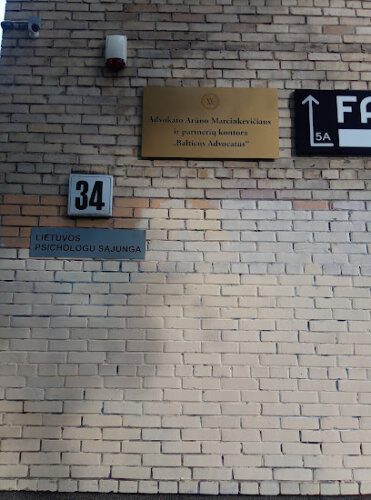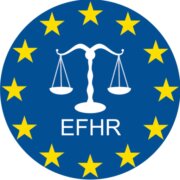Best Civil & Human Rights Lawyers in Vilnius
Share your needs with us, get contacted by law firms.
Free. Takes 2 min.
List of the best lawyers in Vilnius, Republic of Lithuania


About Civil & Human Rights Law in Vilnius, Republic of Lithuania
Vilnius, the capital of Lithuania, upholds a strong commitment to civil and human rights, grounded in both Lithuanian constitutional law and international human rights standards. Civil rights pertain to the guarantee of personal freedom, safety, and security, while human rights encompass a broader spectrum, including rights to dignity, education, healthcare, and equal treatment. Lithuania, being a member of the European Union and a signatory to numerous international human rights treaties, ensures that these rights are protected and respected. The Lithuanian Constitution and legal system provide a framework that supports the preservation and enforcement of these rights.
Why You May Need a Lawyer
Individuals may need legal assistance in civil and human rights for various reasons. Common situations include experiencing discrimination based on race, gender, age, or disability, violations of the right to freedom of expression or privacy, unlawful detention or arrest, and issues related to social and economic rights such as healthcare or housing. Legal help may also be necessary when dealing with workplace rights, in cases of unfair dismissal or harassment, and when ensuring equal access to public services or education. A lawyer specialized in civil and human rights can provide crucial support by navigating the legal system, advocating for rights, and ensuring that justice is served.
Local Laws Overview
Lithuania's legal system is based on civil law, with the Constitution being the supreme law. Key local laws relevant to civil and human rights include the Law on Equal Treatment, the Law on Equal Opportunities for Women and Men, and the Law on the Rights of Persons with Disabilities. These laws aim to eliminate discrimination and promote equality in various spheres of life. Additionally, the Criminal Code and the Civil Code contain provisions to protect individuals from abuses and ensure the right to privacy and protection against defamation. Lithuania also implements numerous EU directives that contribute to a comprehensive human rights framework.
Frequently Asked Questions
What is the Lithuanian Constitution's role in protecting human rights?
The Lithuanian Constitution provides the foundation for human rights protection, outlining fundamental rights and freedoms, such as the right to life, freedom of expression, and equality before the law. It serves as the basis for all other legislation related to civil and human rights.
How does Lithuania combat discrimination?
Lithuania combats discrimination through laws such as the Law on Equal Treatment, which prohibits discrimination based on gender, race, nationality, language, origin, social status, beliefs, or convictions in various spheres, including employment and education.
Who can I contact if I think my rights have been violated?
If you believe your rights have been violated, you can contact a human rights lawyer, a relevant governmental body, or a non-governmental organization specializing in civil and human rights. They can provide guidance on the best course of action.
What legal protections are in place for persons with disabilities?
Persons with disabilities are protected under the Law on the Rights of Persons with Disabilities, which ensures equal access to employment, education, and social services, as well as prohibits discrimination against individuals with disabilities.
Can I receive legal aid if I cannot afford a lawyer?
Yes, Lithuania offers legal aid services for individuals who cannot afford a lawyer. Eligibility is typically based on financial need and the nature of the legal issue. You can apply through the Lithuanian State Guaranteed Legal Aid Service.
How does the European Union affect Lithuanian human rights laws?
As an EU member, Lithuania is bound by EU laws and directives, which strengthen national laws concerning various aspects of human rights, including data protection and anti-discrimination measures.
What are my rights if I am arrested?
In Lithuania, individuals under arrest have the right to legal counsel, the right to be informed of charges, the right to remain silent, and the right to notify a third party of the arrest. These are safeguarded to ensure fair treatment under the law.
How can I challenge a violation of my human rights?
You can bring a case before Lithuanian courts, and if domestic remedies are exhausted, you can appeal to international bodies such as the European Court of Human Rights, provided Lithuania is a member state.
Are there specific laws related to freedom of speech?
Yes, Lithuania upholds freedom of speech, though it is subject to restrictions to protect other rights and public interests, such as national security, public order, and morality, as outlined in relevant laws.
What role do NGOs play in protecting human rights?
NGOs play a crucial role in advocating for human rights by offering legal assistance, raising awareness, conducting research, and providing a voice for marginalized communities.
Additional Resources
Individuals seeking information or assistance can reach out to several organizations and governmental bodies, including:
- The Lithuanian Human Rights Centre, which provides advocacy and legal assistance.
- The Office of the Equal Opportunities Ombudsperson, which handles cases of discrimination.
- The State Guaranteed Legal Aid Service, for those requiring legal aid.
- International organizations like Amnesty International and Human Rights Watch, which offer resources and support.
Next Steps
If you need legal assistance in civil and human rights matters, consider reaching out to a specialized lawyer or a trustworthy non-profit organization. Begin by compiling relevant documentation and evidence related to your issue. You can also contact the State Guaranteed Legal Aid Service if financial constraints are a concern. Remember, taking early action can significantly impact the outcome of your case. Additionally, staying informed about your rights and local laws is invaluable in safeguarding your freedoms and ensuring justice.
Lawzana helps you find the best lawyers and law firms in Vilnius through a curated and pre-screened list of qualified legal professionals. Our platform offers rankings and detailed profiles of attorneys and law firms, allowing you to compare based on practice areas, including Civil & Human Rights, experience, and client feedback.
Each profile includes a description of the firm's areas of practice, client reviews, team members and partners, year of establishment, spoken languages, office locations, contact information, social media presence, and any published articles or resources. Most firms on our platform speak English and are experienced in both local and international legal matters.
Get a quote from top-rated law firms in Vilnius, Republic of Lithuania — quickly, securely, and without unnecessary hassle.
Disclaimer:
The information provided on this page is for general informational purposes only and does not constitute legal advice. While we strive to ensure the accuracy and relevance of the content, legal information may change over time, and interpretations of the law can vary. You should always consult with a qualified legal professional for advice specific to your situation.
We disclaim all liability for actions taken or not taken based on the content of this page. If you believe any information is incorrect or outdated, please contact us, and we will review and update it where appropriate.
Browse civil & human rights law firms by service in Vilnius, Republic of Lithuania
Vilnius, Republic of Lithuania Attorneys in related practice areas.












